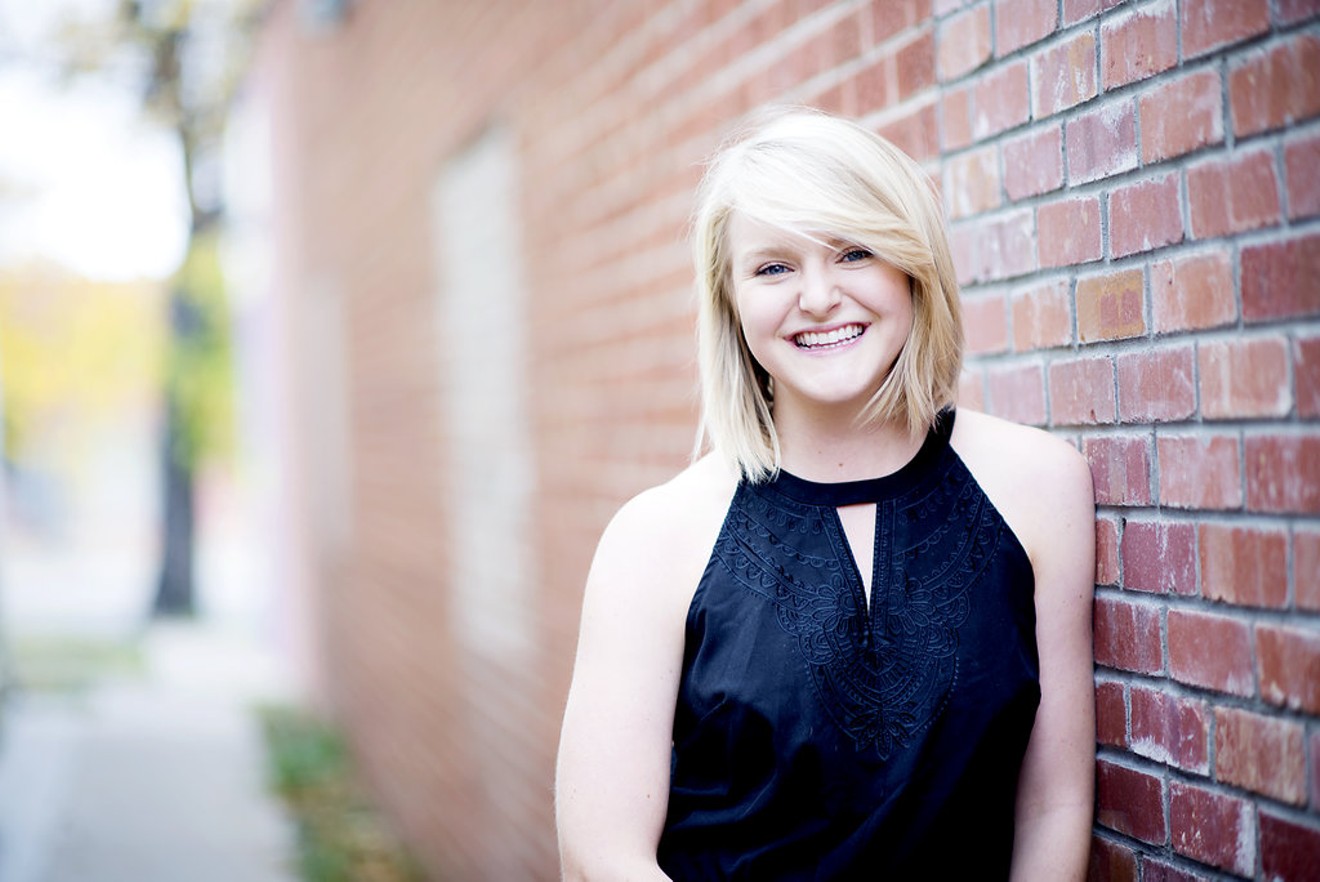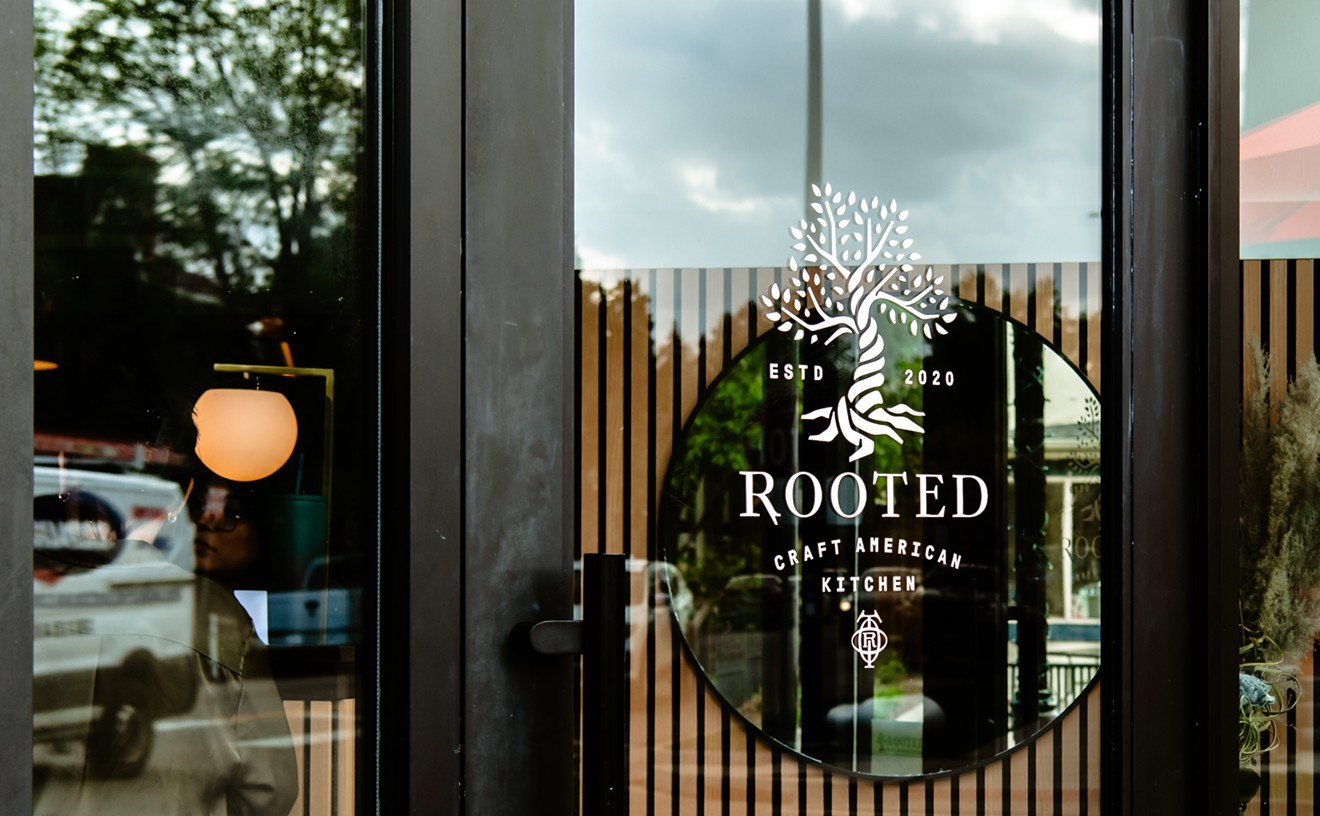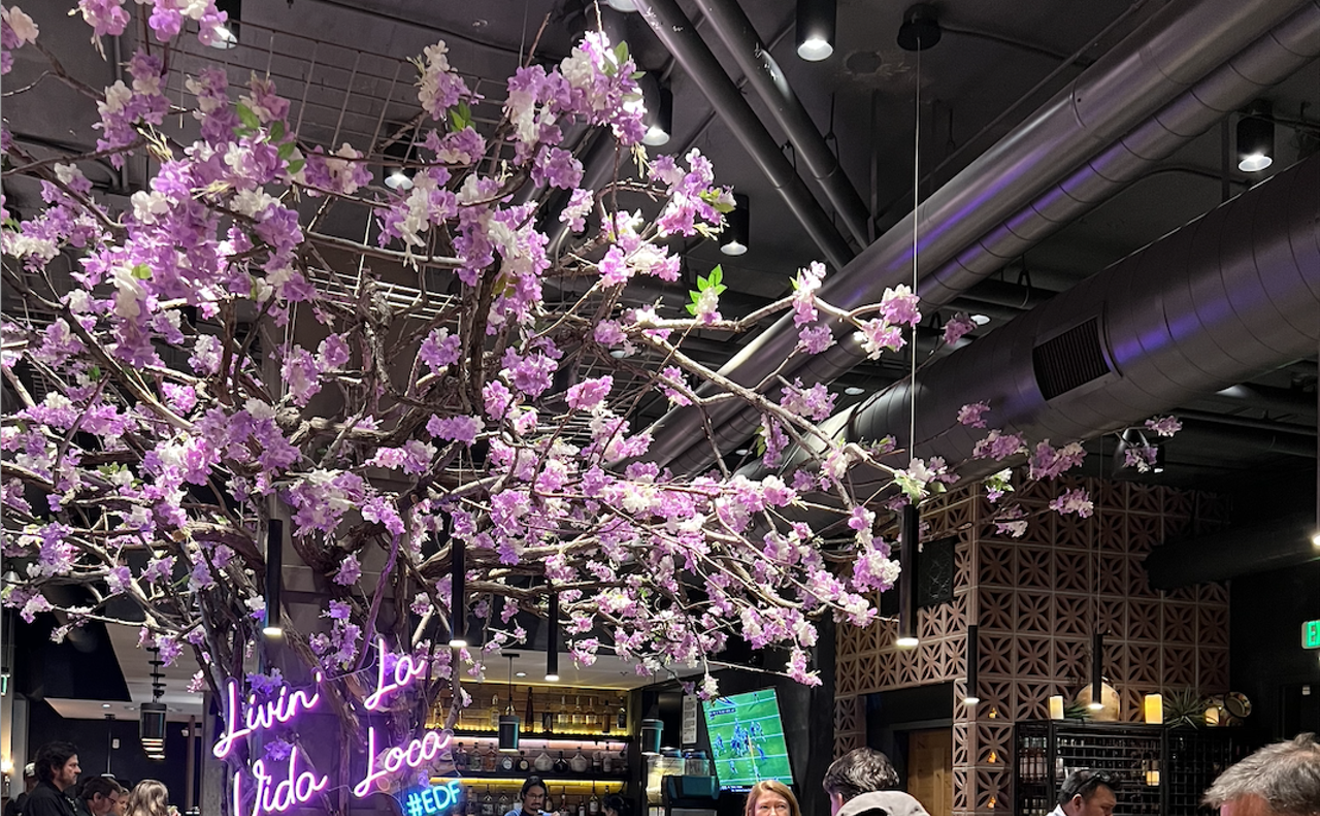Herbalist Erin Hattler has long been exploring the Colorado backcountry in search of nettles, yarrow and other natural remedies. This spring, she answers the question we didn’t know we had: Which trees taste best with whiskey?
Hattler, a Colorado native, apprenticed in New Zealand, Germany, Mexico and Crested Butte, and now she creates teas and tinctures at her Denver-based practice. This year, she invites you to attend her series of workshops at the Denver Botanic Gardens (1007 York Street), featuring cocktails and love potions made from Colorado plants.
Hattler talked to us about her upcoming workshops and foraging for cocktail combinations while hiking the Colorado Rockies.
Westword: What sparked your interest in herbal medicine?
Erin Hattler: I think I was born for this, because as a kid I would run around the woods and eat all the different plants because I was “building my immunities.” We grew herbs, so I’d pick them and put them in water and set them out in the sun, because I said I was making sun teas. Turns out I actually was!
Where do you find your herbs?
Part of the fun of this job is I can say I’m going to work and I’m actually going into the mountains to hike and look for plants. Fir, spruce — those are prolific here. I’ll gather nettles. Yarrow is another great herb both for digestive and first aid, and that’s prolific all around the mountains. Dandelion is an amazing herbal remedy and people spray it all the time, which is a travesty! You can eat the greens, tincture them or use them in a tea; the root is a great liver tonic.
There’s something to be said for ethical wildcrafting. If a species is endangered, rare or hard to find, or there are years we don’t have the growth we normally would, that’s not the time to get it.
What Colorado plants do you love to use?
My number-one favorite plants to use, which I named my business after, are nettles. They grow in Colorado, and they’re one of the most nourishing plants. You can take them in a tea, but they’re an antihistamine as well, so I have them in my first aid kit. I teach about them in the aphrodisiac class because they provide a lot of essential micronutrients. They have vitamin C, calcium, iron, protein, potassium and essential amino acids. I could wax poetic about nettles forever.
What makes nettles an aphrodisiac?
One of the foundations of the aphrodisiac class is that you can’t go into the nature of a plant to stimulate your libido if you’re not taking care of your body. If you’re not taking care of yourself, your body starts to reduce functions, and [your libido] is the first thing to go if something is going to diminish.
What’s the history behind aphrodisiac foods and beverages?
Aphrodisiacs have been around forever. Pretty much since we’ve been using herbs and people have had sex drives, we’ve wanted things to enhance our sex drives. The focus of the workshop is more about how sex is really about connection. The way you get connection is by first connecting with yourself.
What herbs help build this sense of connection?
We’ll be talking about herbs that are both stimulating and relaxing, like cardamom, clove, cinnamon, orange peel, and then we talk about relaxing things like skullcap, which grows in Colorado.
I’ve never heard of skullcap.
Skullcap [in the mint family] actually helps you relax and get out of your head, and it cools down that mental chatter. The idea is to expand the idea of an aphrodisiac from just chocolate and oysters, to what is your specific need or inhibition that’s stopping your passion or pleasure from flowing in a natural way. It could be that you get really anxious, or you’re not nourished, or maybe you’re just so exhausted. There are lots of different ways to figure out your specific need when creating an environment inside and outside yourself that supports your libido and pleasure.
A good cocktail can bring pleasure. What are some recipes you’ll bring to the aperitifs and digestives workshop?
That one’s gonna be really fun – there are a few different ones. I’m bringing in a lot of the spruce and fir and ponderosa pine just because the fir really tastes fir-like and is awesome with whiskey; spruce is really citrusy. Sweet clover has a vanilla smell to it and also blends well in cocktails. Elder as well — we’ll be using some elderberry. You can turn the berries or flowers into a simple syrup or infuse them into vodka.
How do you marry form and function in a cocktail?
If it’s a more bitter herb, that’s something you want at the beginning of your meal rather than sweeter at the end. The practice of drinking aperitifs has a purpose. Bitters stimulate your digestion, and digestives are made with carminative herbs to soothe your digestion; those are the sort of sweeter after-dinner drinks used to make the process of digesting food easier.
How do you create your recipes?
You’re just looking for a nice balance of flavors, the same way you’d build a meal. If I’m trying to figure out a new blend of herbs, I make a tea out of them first, adjust until I find a blend I like, and then add that to the liquor I think it would pair with.
It looks like you’ll be sending people home from some of your workshops with herbal tea. What’s special about these teas?
The biggest thing is, to get the herbs to work, you have to take them! Teas are one of my favorite herb preparations because they’re a nice, gentle introduction to healing plants. Taking that time to brew yourself a cup of tea, that’s a hugely nourishing thing. That might be someone’s only act of daily self-care, but if I can get them doing it, that’s something that’s truly self-care-oriented.
Another workshop is about foods that support gut health. Why is gut health important?
Why isn’t gut health important? This is something that’s really being researched and understood right now; your gut has a massively far-reaching impact into your health. A huge amount of your serotonin is made in your gut, so there’s a link between gut health and brain health, particularly anxiety and depression. I see that in my practice; if we can get someone’s gut health on line, a lot of other things come with it.
What do you hope people will take away from these workshops?
What I really hope is people leave with a greater understanding of how they can take care of themselves and how to use the plants in the backcountry in Colorado. Part of what I’ve always found enchanting about Colorado is the plants and nature, and being able to know the names of these plants and understand their action enables you to have a deeper connection with the land.
It’s easy to be more focused on the view than what’s growing alongside the trail.
In general in modern life, a lot of us are disconnected from our environment in terms of nature. Denver is growing, and I know people who don’t get out often, and that makes me sad. My goal is to show people what a wealth of plants we have here because it makes hiking so much more fun when you look around and say, “I’m surrounded by all these plants I can eat or use.” You have more of a perspective on what’s around you.
Hattler’s workshops are part of the Bonfils-Stanton The Edge of Art and Gardens series at the Denver Botanic Gardens. Her first workshop, "Turn up the Heat: Herbal Love Potions to Ignite Your Senses," begins at 3 p.m. on Thursday, April 26; tuition is $49 ($44 for DBG members). Register online at botanicgardens.org or by phone at 720-865-3500.
[
{
"name": "Air - MediumRectangle - Inline Content - Mobile Display Size",
"component": "12017618",
"insertPoint": "2",
"requiredCountToDisplay": "2"
},{
"name": "Editor Picks",
"component": "17242653",
"insertPoint": "4",
"requiredCountToDisplay": "1"
},{
"name": "Inline Links",
"component": "18838239",
"insertPoint": "8th",
"startingPoint": 8,
"requiredCountToDisplay": "7",
"maxInsertions": 25
},{
"name": "Air - MediumRectangle - Combo - Inline Content",
"component": "17261320",
"insertPoint": "8th",
"startingPoint": 8,
"requiredCountToDisplay": "7",
"maxInsertions": 25
},{
"name": "Inline Links",
"component": "18838239",
"insertPoint": "8th",
"startingPoint": 12,
"requiredCountToDisplay": "11",
"maxInsertions": 25
},{
"name": "Air - Leaderboard Tower - Combo - Inline Content",
"component": "17261321",
"insertPoint": "8th",
"startingPoint": 12,
"requiredCountToDisplay": "11",
"maxInsertions": 25
}
]













